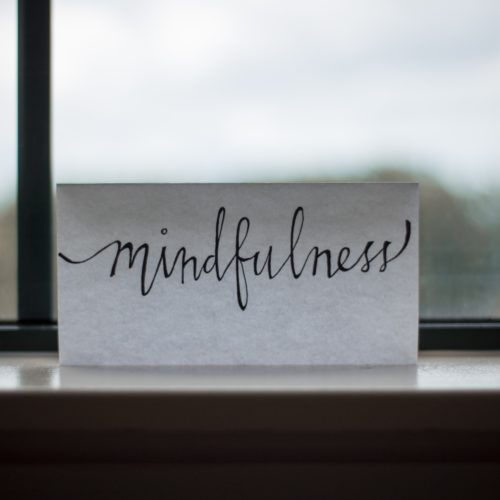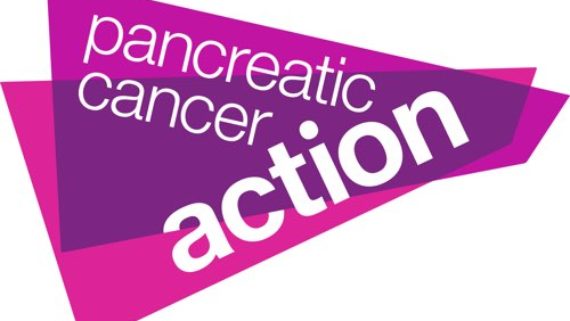We are firm believers at Peak that there is more to being healthy than eating well and exercising. True health can often start and finish with the mind.
That is why we are More Than Just A Gym and want to help our Peak Family in as many ways as we can. We are proud to be the first gym in the UK to offer free meditation and mindfulness tools to our members, linking up with the World's Number 1 App, Calm Health.
So what is Mindfulness?
Mindfulness is a practice of paying attention to the present moment on purpose with kindness and curiosity. Mindfulness is a non-religious, non-dogmatic practice with roots that can be tied to Eastern contemplative practice. Today, mindfulness is practiced by people all around the world, with many diverse languages, cultures and spiritual beliefs.
Mindfulness is a very simple practice. The work of the practice is to bring our attention to the present moment. While the mind is a great time traveller, planning summer holidays or remembering the birth of a child, the body is only ever right where it is. So, when we practice coming home to the present moment, we use the body as an anchor to what is really happening right here, right now. In this moment, can you feel the sensation of the soles of your feet? Can you notice the feeling in your chest? Can you notice your breathing? By coming home to the body and the senses, we are cultivating an awareness of life as we live it, moment to moment. This is mindfulness.
Mindfulness has both formal and informal practices. Formally, to practice mindfulness, we take time apart from the rush of our day to stop for a set amount of time and pay attention. Formal mindfulness practices include, meditation, breathing exercises, body scans, mindful movement, mindful walking and mindful eating. These formal practices are where we really build the muscle of focused attention and compassionate insight. The length of formal practice can range from a couple of minutes to an hour with the potential to go on for much longer periods of uninterrupted silence. Some of the barriers to formal practice include finding the time, falling asleep, discomfort and feeling like you are doing it wrong. All of these barriers are part of the practice.
Developing a new skill is challenging and rewarding work. Formal practice asks us to actively work to create time in our days and years to slow down, rest, connect with ourselves and breathe. While the barriers may seem immense, any small step you can take towards developing a regular formal practice will reap great rewards.
Mindfulness can also be practiced informally, amidst the rush and whirl of our days. We practice mindfulness informally when we take a deep breath before seeing a client when we simply become aware of the sensation of walking as we move work and home, when we can notice the colour and taste of our lunch, and when we can take a moment to look into the eyes of a loved one at the end of a hectic the day. These moments of mindfulness are important as well. While we may not be wearing special clothing, or sitting peacefully on a mountain top, we are still practicing present moment awareness through the demands of a normal day. Informal practice can be an extraordinary way to bring more depth and pleasure to repetitive tasks and as a resource for times when life gets particularly tough. Can I take a breath when I realise that I’ve made a mistake? Can I notice the sensations in my stomach when I say yes to something when really I want to say no? These moments of mindfulness cultivate a stronger relationship with ourselves, our bodies, and our own knowing.
We said that mindfulness is a simple practice. It is simple, but it is not easy. Coming home to ourselves can often be an overwhelming experience; all of our disappointments, fears, and anxieties for the future are faced. The work of turning towards ourselves requires courage as we forge a new, uncharted path of simplicity, kindness and awareness and step away from the well-worn groove of numbing, rushing, and pushing. For this reason, mindfulness is not a neutral, unfeeling practice. In fact, mindfulness could also be heartfulness, because at its core is a kind, compassionate, curious interest in what is happening. Mindfulness turns the loving kindness we would extend to a good friend towards ourselves.
Remember to always bring this warm, nurturing attitude into your practice, for it is truly the best part.
Benefits of Mindfulness
In conjunction with therapy, mindfulness practices and meditation in particular can have exponentially beneficial effects. Some of the benefits of a mindfulness practice include:
1. Reduced Stress
Mindfulness meditation has been scientifically shown to get at the root of the problem of stress: our brain’s over-active tendency to see potential disaster everywhere we look. When we sit mindfully, we become aware of the constant sense of urgency and discontent in our mind. What’s revolutionary about meditation is that instead of feeding this stress by doing more or speeding up, we do the opposite. We slow down, and focus on our breath. After we’ve started to calm down a little, we can observe those stressful feelings and thoughts without getting swept up in them. Over weeks and months of regular practice, our brains actually change. We react less strongly to difficult situations and when we do get triggered, we recover faster. We still live in a stressful world, but with meditation we learn to face it all a lot better.
2. Better Focus
Concentration can be learned just like any other skill. All it takes is practice and good instruction. In meditation, we cultivate concentration by repeatedly bringing our attention back to a chosen point of focus, often our breath or some other sensation in the body. What we choose to focus on is less important than the fact that we pick something and stick with it. Over time, our attention begins to go where we tell it rather than being drawn every which way by random impulses.
3. Improved Flow
Meditation lets us slip into the groove of a task with more ease. The key to entering into flow is to be relaxed but alert, focused but not uptight. Non-meditative concentration tends to use a lot of brow-furrowing effort, which creates tension and discomfort, and actually prevents us from getting into a state of flow.In meditation, rather than tightening up around our point of focus, we relax into it. This allows the mind to settle down, and let’s us really sink into what we’re doing. The same principle applies when we’re writing computer code or playing the saxophone. We enter flow when we’re vibrantly engaged with what we’re doing while at the same time we relaxing into it.
4. Increased Happiness
More and more research is showing that real happiness doesn’t come from possessions or success. It comes from the quality of our experiences. Meditation leads to more happiness by improving our ability to notice and appreciate pleasurable experiences, while cushioning some of life’s hard edges. Technology has brought us all kinds of comforts and luxuries. Yet even with all this progress and innovation, we still face face pain, illness, and everyday annoyances. These can sabotage our ability to enjoy life. Mindfulness teaches us how to be more fully aware and accepting of painful experiences as they happen. Studies of the brain have shown that this has a counter-intuitive effect: increased awareness of pain results in less activation in brain areas associated with suffering. With pleasurable experiences, the effect of mindfulness is the opposite. By allowing us to be vividly present to the joy and goodness of these experiences, we magnify the positive impact they have on our happiness.
5. Stronger resilience in the face of life’s challenges
Life’s big challenges inevitably visit us as unwanted guests, whether a loss, a layoff, or a trauma. When we get hit hard, meditation can help us recover faster and grow from adversity. When something awful has just happened, the most counter-intuitive thing in the world is to focus on something that has nothing to do with what we’re facing. Mindfulness gets us in the habit of doing just that, noticing things like the sunlight reflecting off the leaves outside our window, or the quiet purr of the ceiling fan. We notice that the present moment is filled with a bunch of very ordinary things that aren’t contaminated by fear, pain, anger, or loss. Focusing on something emotionally neutral in a time of distress is like a secret ninja move that lets us slip sideways past our gnawing awareness of the terrible event.That doesn’t make the bad stuff go away. But it does give us a break from our suffering. It gives us a starting point in the here and now to collect ourselves so we can courageously face the future.
6. Better Relationships
The hidden emotional forces within a single person are complicated enough, but put two people together and you’ve got a real tangle. In our important relationships, the stakes are often very high, and we can see our ugliest side come out. We want so badly for things to work out that we become flooded with emotion when things go wrong. The problem isn’t the fact that we’re emotional creatures. Emotions are what allow us to form and strengthen relationships in the first place. The problem is that these emotional forces can get out of control, driving us to say or do things we regret. Meditation teaches us the be more aware of our own feelings and the feelings of those we care about. Emotional awareness is just the first step. We also learn how to step back, take a breath, and choose our response with clarity and compassion. Our usual feelings still arise —fear of abandonment, rage at a perceived slight, and many others. But instead of shutting down or screaming or running away, we learn to notice and name these feelings while maintaining a calm stable centre.
7. Health
Scientists are starting to uncover many ways that meditation can improve our physical health. For decades, doctors have known that stress is one of the biggest contributors to problems with our health. When we’re under chronic stress, it’s not just a mind thing. Stress affects the whole body, leading to inflammation, pain, trouble with digestion, and lowered immunity. So it shouldn’t come as a surprise that meditation, which lowers our overall stress level, also improves our basic physical functioning.










